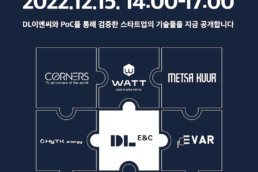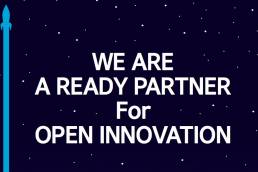The Korea International Trade Association, KITA has been around for over 70 years. KITA is the top association for Open Innovation in Korea. They aim to advance the Korean economy through trade. It is currently the biggest business organization in Korea, with over 75,000 member companies. Therefore, KITA has a huge role in helping companies that wish to trade globally and helping global companies that are looking to trade with Korea. In addition, they help with formulating new trade strategies, mentor trade professionals, support open innovation in Korea, and build a solid trading infrastructure.
Furthermore, KITA has 13 offices in Korea and 11 overseas branches in major cities such as New York and Dubai. These branches are vital in helping Korean startups, and SMEs gain foreign market entry and have contributed greatly to Korea’s $1 trillion in trade volume.
“The Korea International Trade Association (KITA) will do its best to find new export engines and strengthen the global capabilities of our companies this year. We will deeply analyze the changes in the global trade structure and layout future strategies of our companies based on this analysis,” said Kim Young Ju, Korea International Trade Association Chairman.
How KITA Supports Open Innovation in Korea
 Trade Consulting & Trade Policy Recommendation
Trade Consulting & Trade Policy Recommendation
KITA helps with trade-related issues. Therefore, they research trade development, offer strategies, and provide their members with consulting services for trade-related issues. KITA’s professional consulting services include helping with customs clearances, contracts, patents, and dispute settlements. Therefore, for those having issues with export/import, KITA provides help to its members via financial aid services.
Data Regarding Overseas Market & Trade Information
KITA offers K-stat, an in-depth trade statistics page on their site. It gives detailed information on their import/export status, trade trends, and trade relations with other countries. In addition, they constantly publish reports on the latest news regarding trade and overseas markets. Furthermore, KITA has focused on new media platforms such as social media, multimedia channels, and SMS services to distribute its content. Their startup database includes more than 7,000 global startups accumulated through diverse startup-supporting programs.
Fortune 500 Connect
Fortune 500 Connect is focused on linking various stakeholders in the global startup ecosystem. This initiative by KITA will be to stimulate the venture environment. They will source Korean tech startups to fit the specified needs of Large companies. These companies will include both multinational corporations (MNCs) and medium-sized companies. The aim is to enhance the value chain for all through open innovation. Some of the collaborating partners include Lego, Starbucks, Dyson, Beiersdorf, LG, and Porsche to name a few.
KITA’s Global Scale-up Program – InnoBranch
 InnoBranch is an encompassing and inclusive platform that supports global open innovation. They provide cross-matching between large corporations and startups from home and abroad. Therefore, large companies, SMEs, and startups in Korea will be able to connect with large global companies, SMEs, and startups through InnoBranch. The platform will provide its users with vast opportunities to link with the most appropriate partners within the global startup ecosystem. Therefore InnoBranch provides the most user-friendly interface where corporate partners can publish open innovation challenges and recruit, filter, and select startup applicants.
InnoBranch is an encompassing and inclusive platform that supports global open innovation. They provide cross-matching between large corporations and startups from home and abroad. Therefore, large companies, SMEs, and startups in Korea will be able to connect with large global companies, SMEs, and startups through InnoBranch. The platform will provide its users with vast opportunities to link with the most appropriate partners within the global startup ecosystem. Therefore InnoBranch provides the most user-friendly interface where corporate partners can publish open innovation challenges and recruit, filter, and select startup applicants.
The aim is to be the bridge for global companies that are looking to enter the Korean market. In addition, Korean companies are looking to expand outside Korea by partnering with global companies. Therefore, the InnoBranch platform allows global corporations to scout best-matching startup partners. Furthermore, startups can scale up their business globally by cooperating with large corporations. KITA already has an extensive network and partnerships with companies of all sizes, including large and medium companies and startups in various sectors.
How InnoBranch Works – Step by Step

- Corporate partners can upload challenges around specific themes to engage with startups for open innovation.
- Startups can log into InnoBranch at innobranch.com and find the Innovation Challenge they are best fit to participate.
- Startups will then fill out the application form for the Innovation Challenge of their choice.
- The challenge organizer will then review the applications submitted by the startups.
- The challenge organizations will shortlist the startups for further discussion.
KITA’s Global Scale-up Program – COEX Testbed Project

COEX, which offers the largest single-floor exhibition and convention space in Seoul and an expansive underground shopping mall, is owned by KITA. Therefore, KITA offers an excellent testbed environment for companies. KITA initiated the first private testbed project in Korea with COEX to help startups beta-test their innovative technology. Furthermore, startups got an opportunity to gather real-world engagement data. Use cases are crucial for startups to show potential partners and investors their technology, product, or service works in the real world.
The COEX Testbed Project allows startups and large shopping malls to explore new business opportunities. Furthermore, customers are exposed to the latest tech services for a better shopping experience. Startups will access crucial customer feedback, and shopping malls will gain the upper hand by bringing innovative experiences for their shoppers. Last year, 12 Korean startups gained opportunities to test their innovations in various parts of COEX. Startups of all business verticals worldwide are welcome to join the COEX Startup Testbed Project.
Open Innovation in Korea with Startup Branch at COEX

KITA recently opened Startup Branch, which is located at COEX. It provides a platform for Korean startups to scale up and go global. Entrepreneurs in Korea, VCs, incubators, and accelerators can use the branch to network and share ideas. In addition, the Startup Branch has offices and a stage for events and pitches. They aim to offer a place for entrepreneurs in Korea to have the freedom to be creative because KITA is not tied to Korean government aid like agencies such as the Ministry of SMEs and Startups and the Korea Trade-Investment Promotion.
The Startup Branch in COEX will focus on helping startups in Korea scale up by providing mentoring services and helping with collaboration with global companies such as Facebook and Google. Besides Seoul, KITA has opened up two other startup branches in New York and Dubai. They will continue to explore other locations to connect startups in Korea with global companies.
“The Startup Branch is an open platform for startups to not just expand their businesses, but also make connections with established corporations. KITA can help with providing a meeting place and enormous networks,” said Kim Young-ju, CEO at KITA.
KITA’s 3 Pillars to Support Startups in Korea
Globalization
KITA helps organize meetings and helps match startups with Fortune 500 companies.
Scale-up
KITA offers mentorship services and helps with cooperation with global companies.
Open Innovation in Korea
KITA helps match Korean startups with local conglomerates and medium-sized enterprises to explore overseas business opportunities.
NextRise 2020 – Featuring Korean Startups Through Open Innovation

KITA launched NextRise in 2019, a global startup conference with over 5,000 participants. It was a great 2-day event for Korean startups to network with global VCs, Accelerators, and startups from around the world. There were many sessions of seminars, lectures, panel talks, pitches, and presentations regarding open innovation in Korea. These sessions offered great insights into the global startup ecosystem. For 2020-2021, they decided to hold the event both online and offline due to COVID. In 2022, it fully came back offline.
Many global companies participated in NextRise 2019-2022. Some of these global companies included Alibaba, BMW, Airbus, Amazon, Lenovo, Beiersdorf, and Johnson & Johnson, to name a few. They were alongside many Korean corporations such as Samsung and Hyundai.
“Korea has strived for a multifaceted effort to nurture a startup ecosystem here, but one thing that we were lagging is the opportunity for startups to collaborate with large corporations,” said Choi Jong-ku the Financial Services Commission Chairman.
Popular
Related Posts






